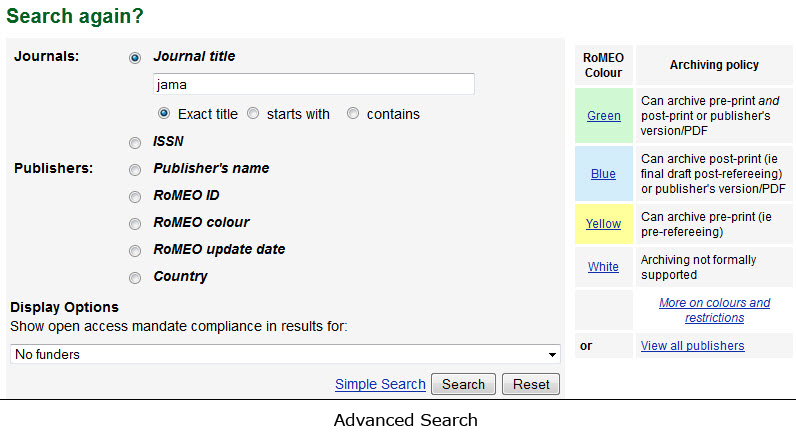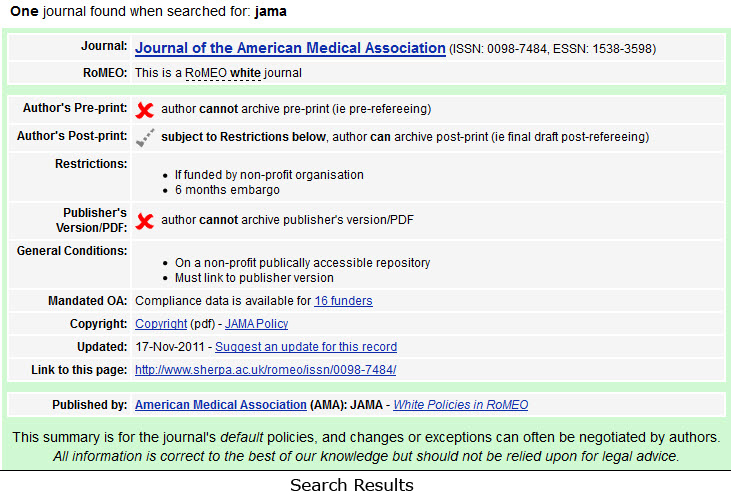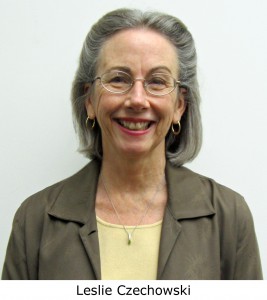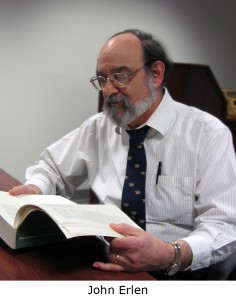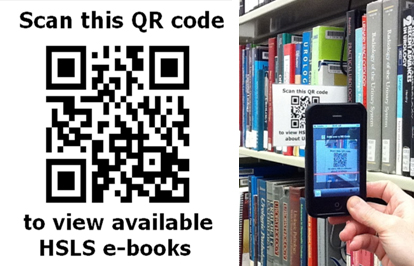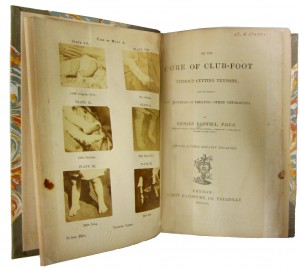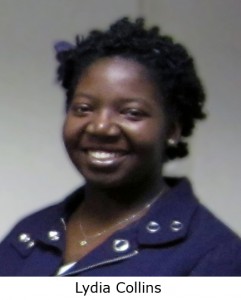SHERPA/RoMEO is a regularly updated database of peer-reviewed journal publishers’ agreements from the Centre for Research Communications at the University of Nottingham in the UK. Currently, there are over 18,000 journals listed from 1,071 publishers in 60 nations. SHERPA/RoMEO is an important tool for authors seeking to disseminate their work more widely. Use it to find publishers or journals that permit deposit of a final version of a paper in a repository, such as PubMed Central or in an institutional repository, such as Pitt’s D-Scholarship@Pitt. Once an article is deposited in a repository, scholars can easily find the full-text version through a Google search. Most importantly, it behooves authors to compare and select the most author-friendly and dissemination-friendly publisher agreement before submitting a paper for publication. SHERPA/RoMEO is the tool of choice for that task.
Search SHERPA/RoMEO by publisher or by journal title. Use Advanced Search for additional options, such as the display of policies relating to specific funding agencies (e.g., NIH or MacArthur Foundation). The system also color codes the archiving or deposit policies of publishers for a quick summary view, with “Green” indicating the most open policy, and “White” the most restrictive. In general, though, it’s recommended that authors review individual publisher policies, rather than rely on the color codes.
Once a publisher record is retrieved, the Default Policies link retrieves a summary table of that publisher’s policies. Note the top section where you’ll find links to Copyright Policy, Article Posting Policies, and Funding Body Agreements. These are the three main documents for authors to review. In the lower section, you’ll find General Conditions, Funding Mandates, and the versions of an article that can be deposited in a repository.
Directory of Open Access Journals
A link to the Directory of Open Access Journals (DOAJ) is available at the bottom of the SHERPA/RoMEO home page, providing access to publishing information on over 7,500 Open Access journals worldwide. Together, SHERPA/RoMEO and DOAJ give authors the power to select journals that will ensure the widest dissemination of their work.
For further information on SHERPA/RoMEO or Open Access, contact Andrea Ketchum at 412-648-9757 or e-mail ketchum@pitt.edu.
~ Andrea Ketchum
